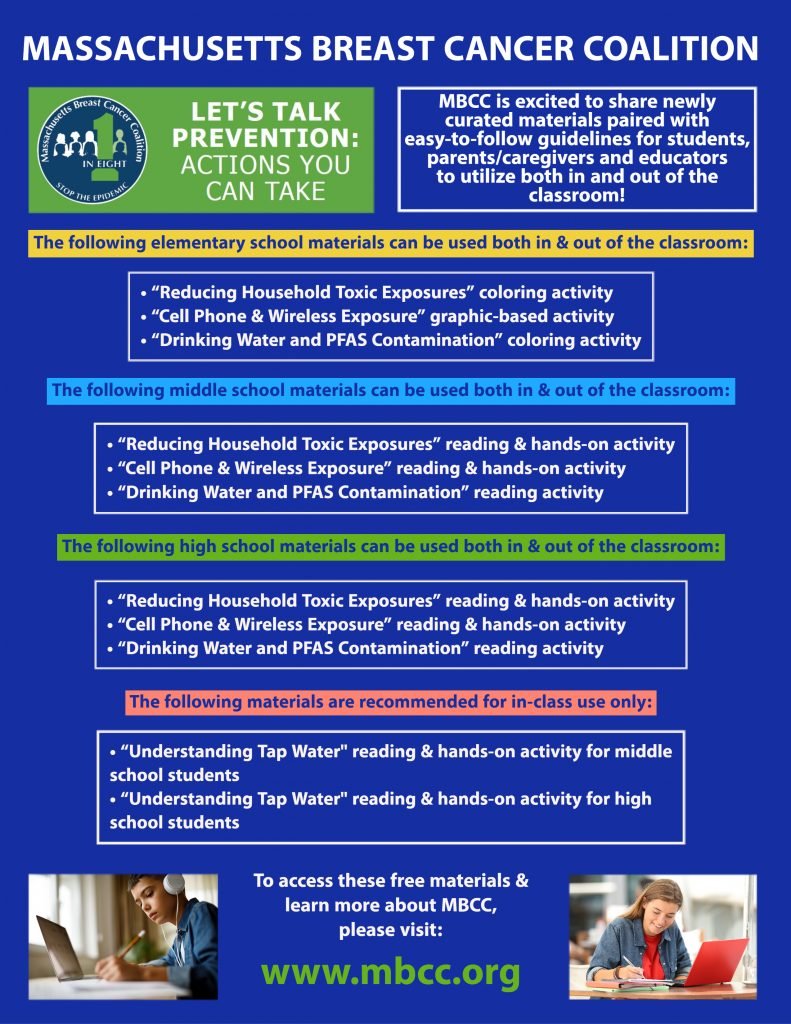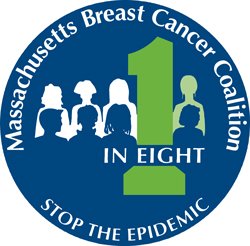 Dear MBCC Friends,
Dear MBCC Friends,
I hope that this letter finds you, your family, and your loved ones well.
Today, as promised, I am pleased to announce that we have expanded the Let’s Talk Prevention: Actions You Can Take (LTP) high school program to now include classroom materials for both middle and elementary school students. In 2017, MBCC was proud to introduce classroom modules developed in partnership with scientists and educators to provide high school students with tools to fully understand how environmental exposures can negatively impact our health. We have once again worked with our partners to provide age-appropriate materials for middle and elementary school students. With the challenges brought on by COVID-19 and the quick transition to remote learning, we felt compelled to modify both our existing and new materials to help support the needs of teachers, parents/caregivers, and students so they can utilize the materials both in and outside of the classroom. The modules cover topics ranging from how to reduce household toxic exposures, the links between radiofrequency radiation from wireless devices and our health, and the risks of PFAS (Per- and Polyfluoroalkyl Substances) contamination.
Along with the expanded environmental health program for students, I am also pleased to announce the launch of MBCC’s campaign which emphasizes the importance of advocating for safer legislation that will benefit every community across the Commonwealth – and invites students to help lead the charge. MBCC is reaching out to educators and parents/caregivers to help encourage high school students across Massachusetts to contact their local representatives in support of legislation that would ban PFAS from food packaging across the state. MBCC will be actively monitoring the status of two bills in particular – S.1315 and H.3839 – which are geared towards removing these harmful toxins from food packaging, and encouraging students to revisit the MBCC website for updates regarding the campaign.
This campaign will help students remain engaged with their fellow classmates who choose to participate in this “call to action” to ensure state legislators are proactive about the passage of policies that will protect generations to come from harmful and unnecessary exposures to PFAS. We hope that by combining MBCC’s health education curriculum with the opportunity for students to participate in civic engagement through this year’s advocacy campaign that our efforts will help prevent future health implications related to environmental exposures.
We invite you to visit the MBCC website and share these materials with family, friends, and community while we all continue adapting to the rapidly changing world around us.
All of us at MBCC wish you and your family good health as we continue to navigate these difficult times.
With caring appreciation,


